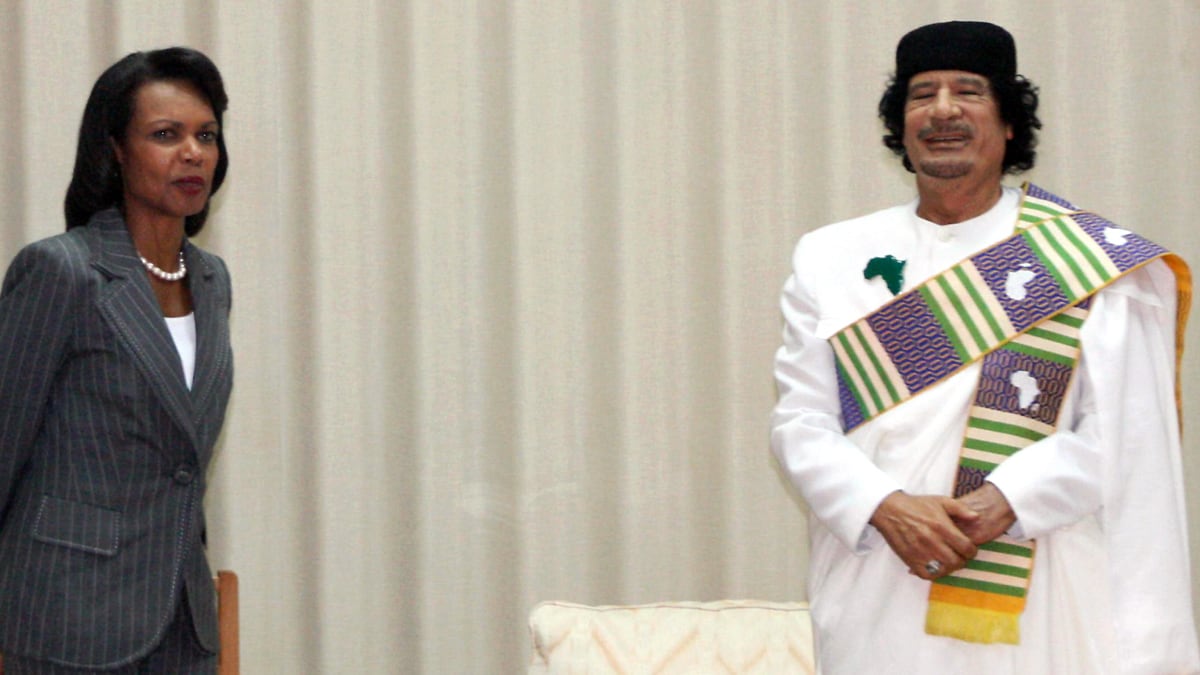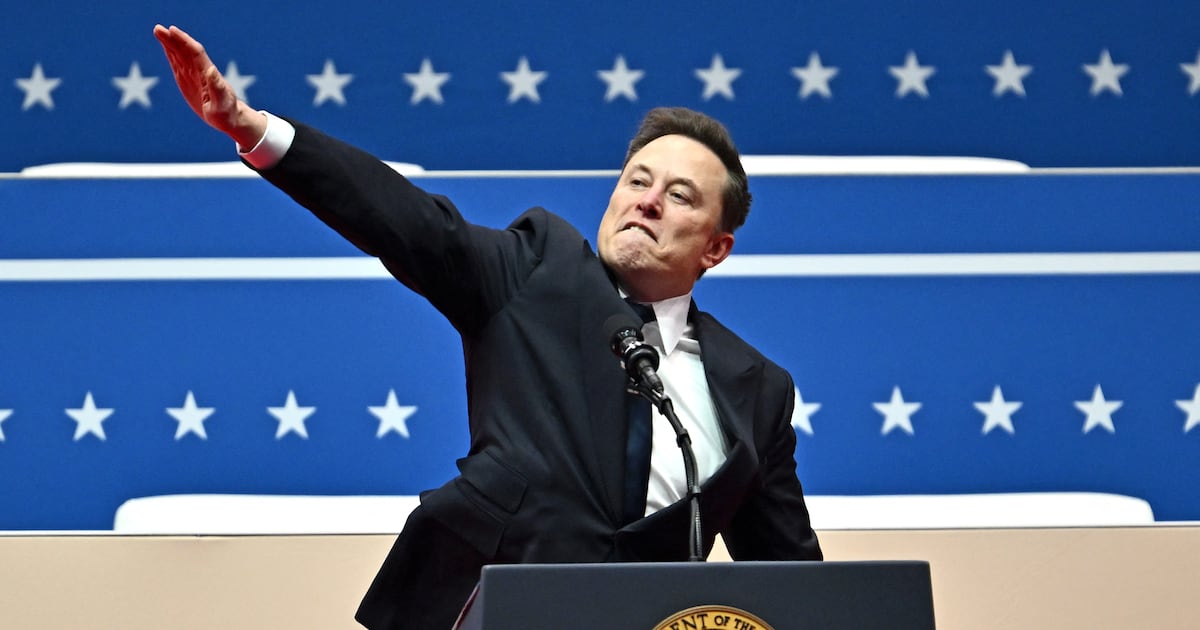Rice takes us inside the Bush administration—and inside her head—during some of the world’s tensest moments when she was national security adviser, describing what happened when she pressed for answers on what the plans were after a successful Iraq invasion. “When I finally arranged a briefing on the issue before the president in early February [2003] he started the meeting in a way that completely destroyed any chance of getting an answer. 'This is something Condi has wanted to talk about,' he said. I could immediately see that the generals no longer thought it to be a serious question."
Stephen Hadley, who was then Rice’s No. 2 and would succeed her at the National Security Council, followed her to her office after the “disastrous meeting.” “I would have resigned after that comment by the President,”he said. Instead, she kept pressing the issue privately until the president himself was asking pointed questions.
With Gaddafi gone, the Bush administration’s highest-ranking official to meet with the Libyan dictator tells of her time negotiating the WMD stockpile and her relief he couldn’t reap more destruction in his final days.
In another excerpt, Rice recounts her trips to Israel in 2008, and provides for the first time detail of an extraordinary offer from Israel’s then-Prime Minister Ehud Olmert. During a meeting with Olmert in Jerusalem, Rice was stunned by the boldness of an offer he would personally make to Palestinian president Abbas. "I'll give him enough land, maybe something like 94 percent with swaps...There will be two capitals, one for us in West Jerusalem and one for the Palestinians in East Jerusalem. The mayor of the joint city council will be selected by population percentage,” Rice recalls Olmert offering.
Rice thought a peace deal was in sight, the beginning of an actual two-state solution. However, her reservations were validated when Olmert and Abbas eventually met. Olmert wouldn’t let Abbas take the map he had drawn with his proposed Palestinian territory to consult his advisors, demanding that he sign an agreement immediately. Abbas refused, and the deal was shelved. Months later, President Bush made another appeal to Abbas to agree to Olmert’s proposal. “The Palestinian stood firm, and the idea died,” Rice recalls. “Now, as I write in 2011, the process seems to have gone backward.”
The peace plan was shattered, but Rice believes the administration succeeded in pushing the region toward democracy by ousting Saddam Hussein. Asked about the cost of the war, she tells Christopher Dickey, “I don’t think you put a price on a Middle East that will look very different without Saddam Hussein and with movement toward freedom.”
“Revolutions are not pretty,” Rice says of the changes sweeping the region now and the often brutal forms they take, such as Gaddafi’s gory end. “If political reform comes late, when there is a lot of anger, then it is not going to be either smooth, or, frankly, look like we would like it to look.”

Despite this, Rice predicts a better ending to the Middle East revolutions and credits Bush’s Freedom Agenda with facilitating it. “We pursued the Freedom Agenda not only because it was right but also because it was necessary,” she writes. “There is both a moral case and a practical one for the proposition that no man, woman or child should live in tyranny. Those who excoriate the approach as idealistic or unrealistic missed the point. In the long run, it is authoritarianism that is unstable and unrealistic.”
And then there were the domestic issues. When Hurricane Katrina tore through New Orleans, Rice soon realized that racial politics were at play. At the time, she couldn’t take her eyes off the frightened faces that filled her television screen. She called the president and told him she was heading back to Washington from New York. “We clearly have a race problem,” she said. Though she saw the criticism coming, Rice writes she is still mad at herself for “only belatedly understanding my own role and responsibilities in the crisis.” “At the end of my visit to Mobile, I told the press, ‘Nobody, especially the President, would have left people unattended on the basis of race.’ I am to this day appalled it was necessary to say it.”
Rice’s memoir comes in the wake of Dick Cheney’s and Donald Rumsfeld’s, both of whom have taken shots at her management style as they push their own books. Rice acknowledges that she and Rumsfeld often sparred in the White House, but describes Rumsfeld as a friend, albeit a “grumpy” one.
When it came to the working together on post-invasion Iraq, Rumsfeld called most of the shots. “I was skeptical,” she tells Christopher Dickey, “until the day Bob Gates became secretary of defense.”






